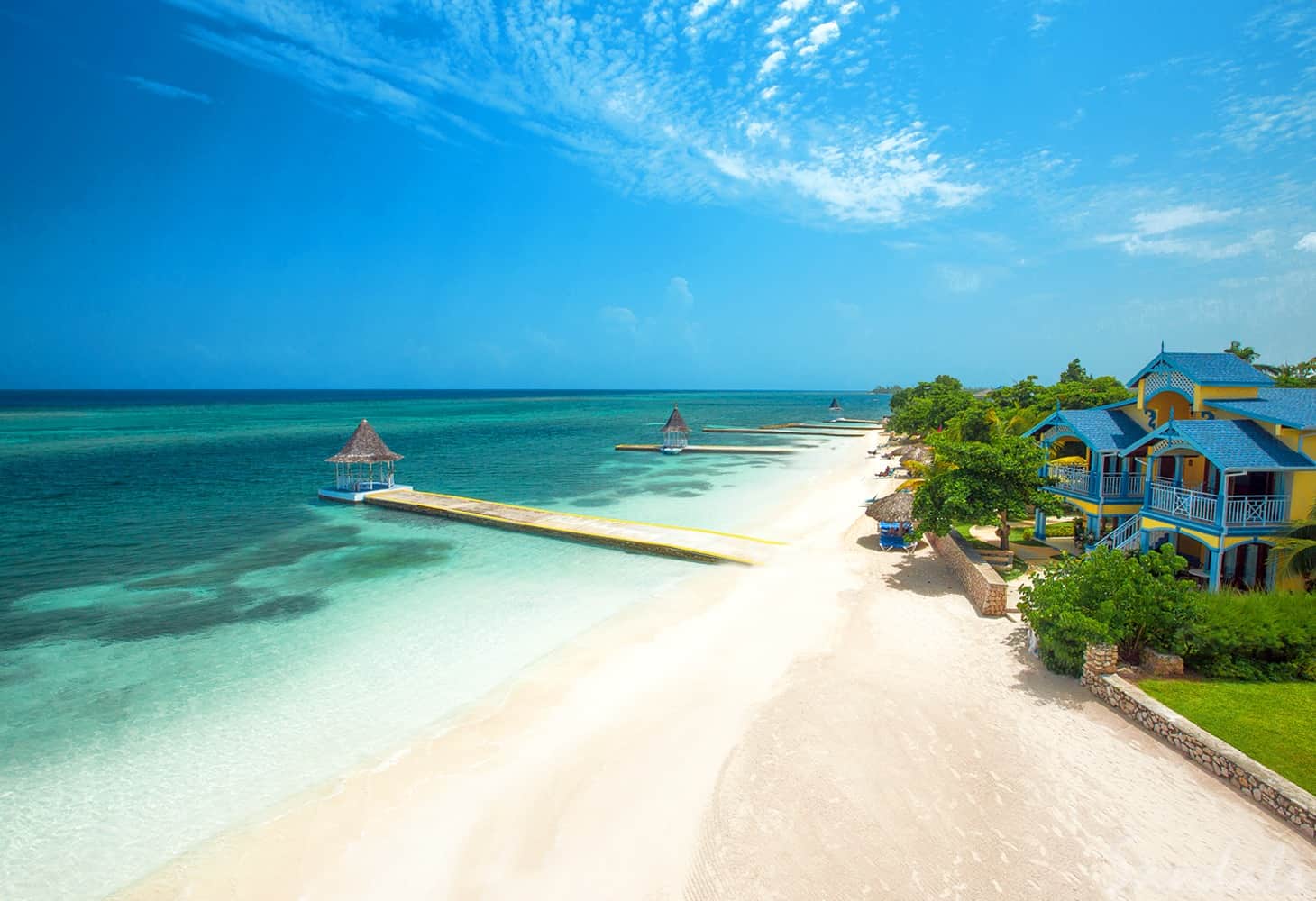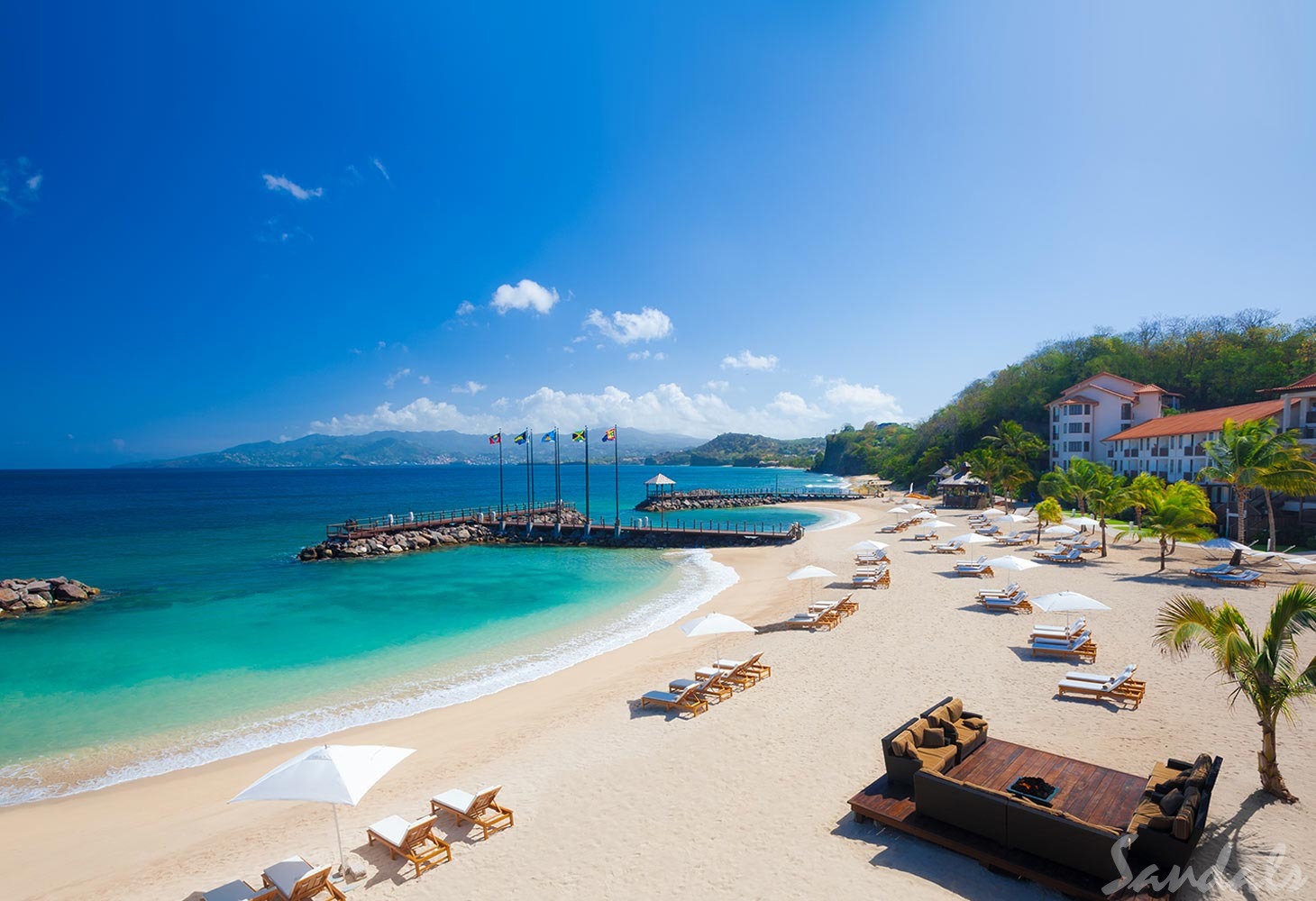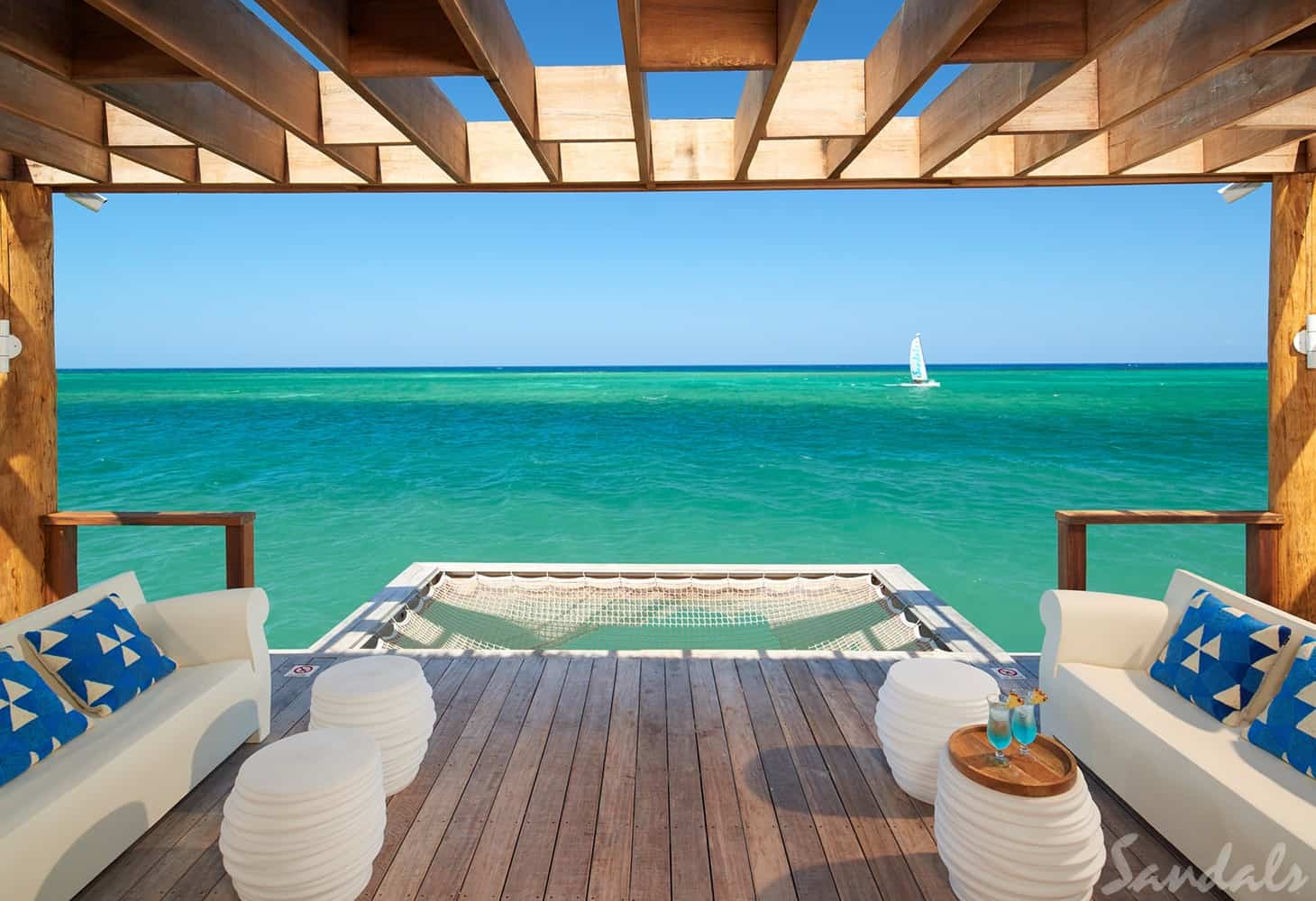Some lucky couples are able to work from home with their partners. While this setup certainly comes with its own set of challenges, it also offers some possibilities as a nomad couple.
Have you ever wanted to live in paradise with your partner? Hang out on sandy beaches together? All while working remotely? There are programs available, and it is possible to live in paradise while sustaining yourself on remote work.

Photo credit: Sandals Montego Bay
What Is a Digital Nomad Visa?
You can get what is called a Digital Nomad Visa in the Caribbean, also known as a temporary resident visa or a remote worker visa. With a digital nomad visa, you are able to stay somewhere for longer than you usually would because you are someone who lives by working remotely.
The idea is that because your income comes from out of the country, you are supporting the local economy much like a tourist, but for longer. With a digital nomad visa, you’ll be able to live in the country without paying local taxes and without having to go through the extended process to get citizenship or a residency visa.
Most digital nomad visa programs don’t allow recipients to apply for local employment. They also have income requirements, as well as a clean police record, health insurance, and travel insurance.
How to Get a Digital Nomad Visa
For couples looking to get a digital nomad visa, you’ll need a $2,000 application fee (or $3,000 for a family), and proof of a remote income of at least $50,000 per year, or other evidence of a means to support yourselves. While the application fee may seem expensive, it shouldn’t be too much of a burden for those interested in this program.
The basic requirements are:
- A total income of $50,000 or more a year and/or a way to support you, your spouse, and dependents you have.
- Proof of health insurance.
- A clean criminal record.
From there, you’ll need to submit the following information:
- A passport for every applicant.
- A certificate of medical insurance coverage for how long you intend to stay
- Police clearance for each applicant over the age of 16.
- Proof of relationship to dependents coming with you.
- Evidence of employment, including self-employment.
- A declaration certifying expected income of no less than US $50,000 or its equivalent in other currencies per year
Basically, the local government wants to be sure you’ll be able to support yourself and any dependents you bring with you during your stay. As long as you can do that, the visa is yours, and you’re free to stay for up to two years. Other than that, you’ll need to secure a place to stay before you arrive.

Sandals Grenada. Photo credit: Sandals.
Where Remote Workers Can Live
There are five countries in the Caribbean looking to attract remote workers who can stay at least one year. Once you apply for a digital nomad visa, you’ll receive a response within 14 days. You can stay in any of the following countries.
Anguilla
The island of Anguilla comprises 35-square-miles and has been named the best island in the Caribbean several years in a row by Travel + Leisure. Anguilla is also happy to report it has very little Coronavirus activity, and no one has died from the virus.
Antigua
Antigua is a former British colony that gained its independence in 1981. English is its official language, and it has had less than 100 positive cases of Coronavirus since the pandemic began.
Barbados
Barbados has a friendly atmosphere, beautiful beaches and has already welcomed 2,800 people under the digital nomad visa program. The island has a low number of Coronavirus cases.
Bermuda
Bermuda’s pink sand beaches are a remote worker’s paradise. Bermuda is happy to join this trend of remote workers that has been accelerated by the COVID-19 pandemic.
Cayman Islands
The Cayman Islands offer an appealing culture and infrastructure for remote working couples. On top of that, the country is almost entirely COVID-free, and masks and social distancing are no longer required.
Benefits for Remote Working Couples in the Caribbean
No matter where you choose to live, you can expect a thriving culture with easy access to fast internet connections, a supportive community, and available work accommodations. In addition to the sandy beaches, there are coffee shops, cafes, and restaurants with internet access available for remote workers.

Photo credit: Sandals Montego Bay
What’s more, these five countries and others that may soon join them have become a hub for digital nomads. People working remotely from all over the world have begun coming to these places to form a community of like-minded people from diverse backgrounds.
Whether you’re looking to visit the Caribbean or move there for remote work, there are opportunities available, such as vacations in Grenada.
___________________
This article is published in a sponsored collaboration with Sandals Resorts.

Renee Blodgett is the founder of We Blog the World. The site combines the magic of an online culture and travel magazine with a global blog network and has contributors from every continent in the world. Having lived in 10 countries and explored over 90, she is an avid traveler, and a lover, observer and participant in cultural diversity. She is also the founder of the Magdalene Collection, a jewelry line dedicated to women’s unsung voices and stories, and the award-winning author of the bestselling book Magdalene’s Journey
She is founder of Blue Soul Media and co-founder of Blue Soul Earth as well as the producer and host of the award-winning Blue Soul CHATS podcast, that bridges science, technology and spirituality. Renee also founded Magic Sauce Media, a new media services consultancy focused on viral marketing, social media, branding, events and PR. For over 20 years, she has helped companies from 12 countries get traction in the market. Known for her global and organic approach to product and corporate launches, Renee practices what she pitches and as an active user of social media, she helps clients navigate digital waters from around the world. Renee has been blogging for over 16 years and regularly writes on her personal blog Down the Avenue, Huffington Post, BlogHer, We Blog the World and other sites. She was ranked #12 Social Media Influencer by Forbes Magazine and is listed as a new media influencer and game changer on various sites and books on the new media revolution. In 2013, she was listed as the 6th most influential woman in social media by Forbes Magazine on a Top 20 List.
Her passion for art, storytelling and photography led to the launch of Magic Sauce Photography, which is a visual extension of her writing, the result of which has led to producing six photo books: Galapagos Islands, London, South Africa, Rome, Urbanization and Ecuador.
Renee is also the co-founder of Traveling Geeks, an initiative that brings entrepreneurs, thought leaders, bloggers, creators, curators and influencers to other countries to share and learn from peers, governments, corporations, and the general public in order to educate, share, evaluate, and promote innovative technologies.








